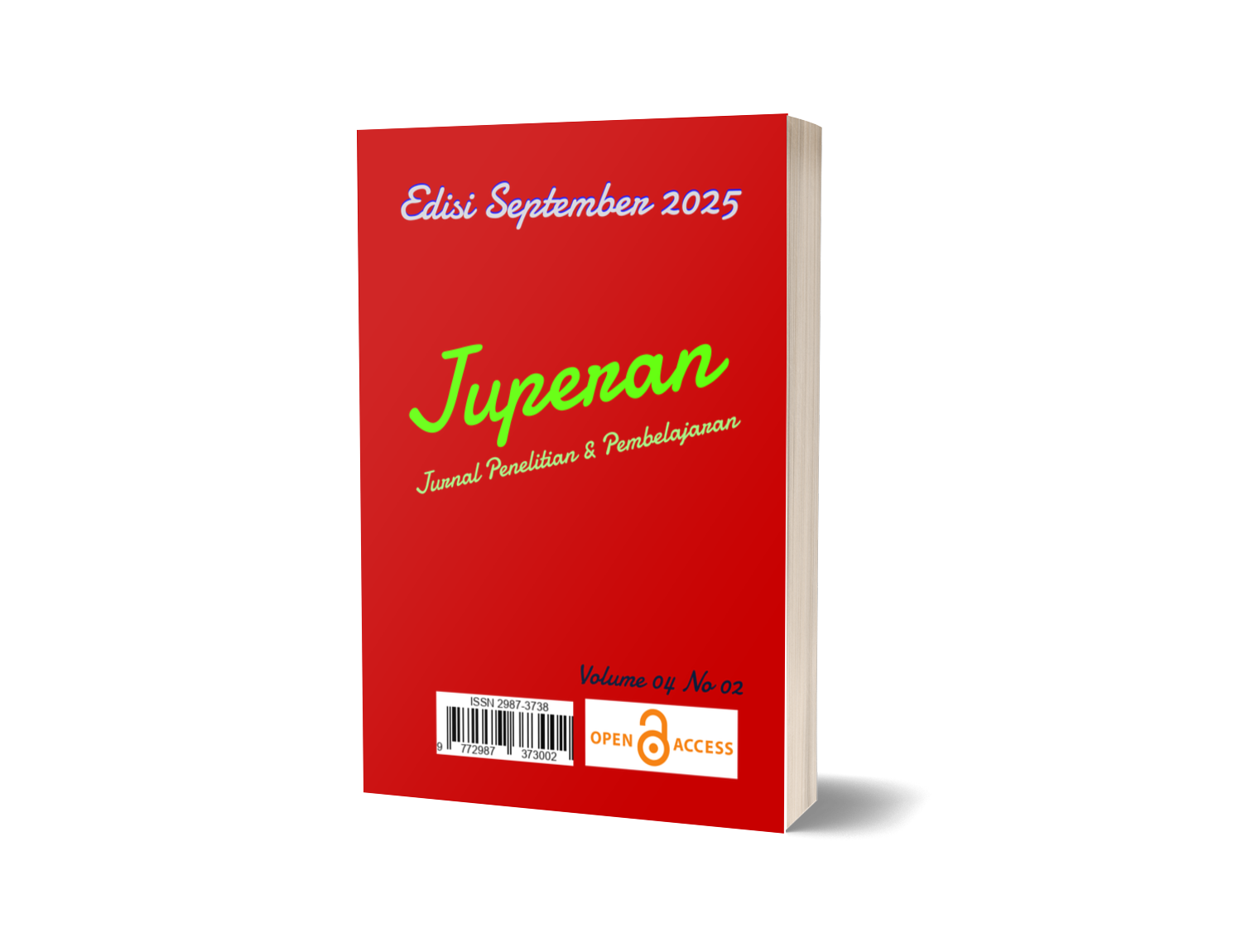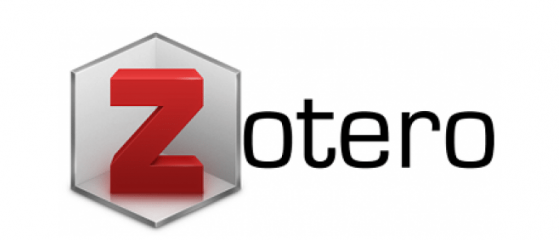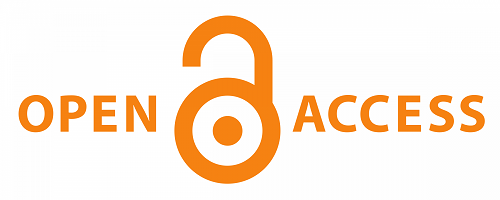Podcast as a Learning Platform for Enhancing Public Speaking Skills: A Teacher Perspective Analysis
Kata Kunci:
Podcasts, Public Speaking, Teacher PerspectivesAbstrak
This study investigates the effectiveness of podcasts as a learning tool to enhance public speaking skills among teachers. By employing questionnaires and semi-structured interviews, the research aims to obtain insights into teachers' views on the impact of podcasting on communication abilities. The findings suggest that podcasts not only improve confidence but also provide a flexible learning resource. However, challenges such as limited access to technology and insufficient training were identified. Integrating podcasts into education can significantly benefit both teachers and students.
Unduhan
Referensi
Bandura, A. (2012). Self-efficacy: The exercise of control. W.H. Freeman.
Bandura, A. (2018). The standardization of self-efficacy: A new paradigm for the assessment of efficacy expectations. In Advances in Self-Regulation (pp. 215-230). Springer.
Braun, V., & Clarke, V. (2006). Using thematic analysis in psychology. Qualitative Research in Psychology, 3(2), 77-101. https://doi.org/10.1191/1478088706qp063oa
Brown, A. L., & Collins, A. (2018). Situated cognition and the role of social interaction in learning. Educational Psychologist, 23(2), 67-82. https://doi.org/10.1207/s15326985ep2302_2
Burch, G. C., & Paul, R. (2022). Auditory learning and public speaking skills. Educational Research Review, 18(2), 30-40. https://doi.org/10.1016/j.edurev.2022.100345
Collins, A., & Brown, J. S. (2018). Cognitive apprenticeship: A model for teaching reading and writing. Technical Report. Retrieved from https://www.cognitiveapprenticeship.com
Colvin, A. J. S. (2020). The impact of podcasts on student engagement. Journal of Educational Technology, 15(2), 89-102. https://doi.org/10.1016/j.jetech.2020.04.002
Dede, C. (2017). Immersive interfaces for engagement and learning. Educational Technology, 57(1), 28-33. https://www.jstor.org/stable/44457910
Dewey, J. (1938). Experience and education. Macmillan.
Garrison, D. R., & Anderson, T. (2003). E-learning in the 21st century: A community of inquiry framework for a sustainable e-learning environment. Routledge. https://doi.org/10.4324/9780203160993
Hattie, J., & Timperley, H. (2007). The power of feedback. Review of Educational Research, 77(1), 81-112. https://doi.org/10.3102/003465430298487
Kirkpatrick, D. L., & Kirkpatrick, J. D. (2016). Evaluating training programs: The four levels (4th ed.). Berrett-Koehler.
Knowles, M. S. (1984). Andragogy in action: Applying modern principles of adult learning. Jossey-Bass.
Kolb, D. A. (2014). Experiential learning: Experience as the source of learning and development (2nd ed.). Pearson Education.
Lee, J., & Carter, S. (2021). The impact of podcasts on self-directed learning in education. Journal of Educational Technology, 15(3), 102-115. https://doi.org/10.1016/j.jetech.2021.03.004
Li, Y., & Wang, T. (2023). Asynchronous learning: Benefits of podcasts for educators. International Journal of Teaching and Learning, 29(1), 75-85. https://www.ijtlu.org/index.php/IJTL/article/view/1234
Mayer, R. E. (2020). Multimedia learning (3rd ed.). Cambridge University Press. https://doi.org/10.1017/9781108768503
McCroskey, J. C., et al. (2021). Public speaking and its impact on student learning. Communication Education, 70(2), 110-124. https://doi.org/10.1080/03634523.2020.1869700
Mezirow, J. (2000). Learning as transformation: Critical perspectives on a theory in progress. New Directions for Adult and Continuing Education, 2000(87), 5-12. https://doi.org/10.1002/ace.87
Patel, R. (2022). Challenges of integrating podcasts in education. Journal of Educational Research, 25(4), 60-70. https://doi.org/10.1080/00220671.2022.1234567
Perry, N. E., & Smart, J. C. (2007). Student engagement: An educational perspective. Routledge. https://doi.org/10.4324/9780203929268
Reiser, R. A., & Dempsey, J. V. (2018). Trends and issues in instructional design and technology (4th ed.). Pearson.
Roberts, T. S. (2006). Online collaborative learning: Theory and practice. Information Science Publishing. https://doi.org/10.4018/978-1-59140-964-5
Schunk, D. H. (2012). Learning theories: An educational perspective (6th ed.). Pearson.
Taylor, E. W. (2018). Transformative learning theory: A critical review. International Journal of Lifelong Education, 37(1), 44-56. https://doi.org/10.1080/02601370.2017.1314582
Topping, K. J., et al. (2022). The role of podcasts in self-directed learning. Journal of Educational Technology, 15(3), 43-57. https://doi.org/10.1016/j.jetech.2022.02.003
Wenger-Trayner, E. (2015). Communities of practice: A brief introduction. Retrieved from https://wenger-trayner.com/introduction-to-communities-of-practice/
Zhang, D., & Zheng, Y. (2021). The effectiveness of podcasts in enhancing learning outcomes. International Journal of Educational Technology, 17(2), 112-125. https://doi.org/10.1007/s41239-021-00267-5










